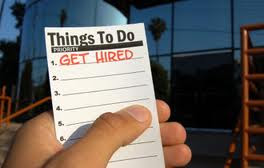The housing market still looks pretty bleak: There were a record one million foreclosures last year, home prices are still falling in many regions and the number of "underwater" properties is at a record high.
And things don't look much better in other areas of real estate. The number of construction jobs continues to decline, even as other parts of the economy have added jobs. And mortgage rates have moved higher as long-term Treasury yields have backed up during the past few months.
Basically, the real estate market remains a mess.
Real estate encompasses a wide range of markets – homes, apartments, hospitals, office buildings, strip malls, dormitories and other properties. But for our purposes, let's focus on residential real estate, or homes. Here are four reasons to think residential real estate might represent a bargain – with one big caveat.
Everyone hates homes.
Homes are probably the most hated asset class in the country. That's what happens when a bubble bursts. People avoid thinking about the value of their home. Sellers moan about no offers, buyers gripe about impossible lending requirements.
Hatred of an asset is often the precursor to contrarian interest, and being contrarian is at the heart of many investment strategies. To paraphrase Warren Buffett, be fearful when others are greedy and greedy when others are fearful. Mr. Buffett backed that idea when he invested in the stock market in the teeth of the financial crisis in late 2008 and early 2009.
Of course, being contrarian for its own sake isn't wise investing. Gold was hated for years ("dead money") before it recently became an attractive asset class. Still, a lot of smart ideas begin with the question: What does everyone hate?
Smart people are buying real estate.
This cohort is led by John Paulson, the hedge-fund manager who made $20 billion betting against the housing bubble. Last fall he said in a speech: "If you don't own a home buy one. If you own one home, buy another one, and if you own two homes buy a third and lend your relatives the money to buy a home."
Why is Mr. Paulson so adamant? Because he believes long-term interest rates are not going to get much lower. They have, in fact, risen since he gave that speech, but they remain remarkably low by historic standards. Low rates and the expectation that home prices will rise is his argument. For his part, Mr. Buffett has predicted the housing market will bottom this year.
Real estate performs well during inflation.
There's no inflation these days, but when buying a home one should take a longer view. And the longer view shows that the economy has enjoyed a disinflationary period since the early 1980s. A number of folks think that cycle is slowly reversing itself.
If that's the case, then convention would argue for holding assets that do well in an inflationary environment. That includes Treasury Inflation Protected Securities, commodities and real estate. Remember that during the stagflation nightmare of the 1970s, real estate had a strong run.
Inflation isn't a significant issue in the U.S., but it's a growing problem elsewhere. China and India have taken steps to fight inflation, the euro zone is getting flickers of inflation and the U.K. has had oddly higher prices (above 3%) for an extended period of time. If the cycle is slowly turning, real estate makes more sense.
Demand may be coming back.
Supply isn't as out of whack as it used to be. At the end of November, home builders reported 197,000 new homes on the market, the lowest level since 1968, according to Yardeni Research. The National Association of Realtors reports that the inventory of existing homes for sale fell 4% to 3.71 million homes, which represents a 9.5-month supply at the current sales pace, down from a 10.5-month supply in October.
Those aren't pretty numbers, of course, but they are moving in the correct direction. And that may be a reason that many home builder stocks, such as KB Home ( KBH: 15.31*, -0.40, -2.54% ) , Hovnanian ( HOV: 4.87*, -0.09, -1.81% ) , Pulte ( PHA: 24.24*, +0.19, +0.79% ) and Toll Brothers ( TOL: 20.75*, -0.15, -0.71% ) , have come off their lows in the past several weeks.
It's all comes down to jobs. There are a zillion caveats to any positive home thesis, but the big one is unemployment. If the economy is not creating jobs, the chance of a rebound in housing is diminished. It's hard to buy a home without a job, and folks who aren't working don't want to take long-term risks.
The job market is still struggling and the debate is hot about when it will recover. Optimists see recovery this year. Pessimists see pain for several years ahead. How this X factor gets resolved will say a great deal about whether housing will rebound.
Read more: 4 Reasons to Buy a Home Now - SmartMoney.com http://www.smartmoney.com/personal-finance/real-estate/-1295050347411/#ixzz1BPLSFyKK
 Many customers don’t realize that closing costs are negotiable, mortgage experts tell The New York Times.
Many customers don’t realize that closing costs are negotiable, mortgage experts tell The New York Times. 










